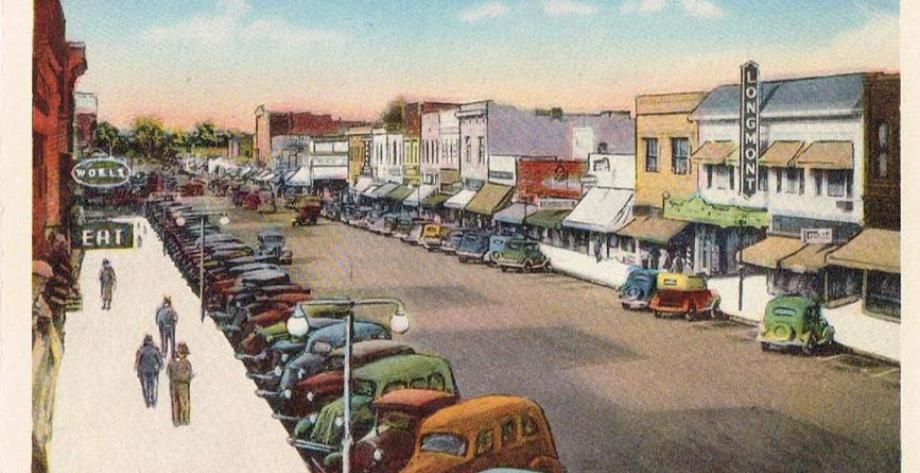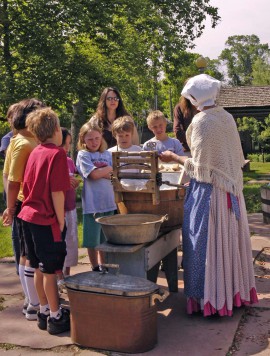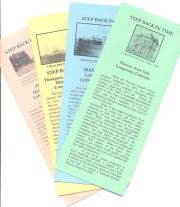
SVHS Programs
Pioneer Days at Old Mill Park
Imagine it-- 1860 in the Affolter Cabin, Mrs. Affolter cooks stew and biscuits over the fire as she talks with students about what life was like in the one-room cabin with no electricity, phones, indoor plumbing or even closets! She challenges the children to think of ways her cabin differs from their homes of today. Across the breezeway in the cabin’s tool room, Mr. Affolter demonstrates the blacksmith’s equipment that was so necessary for making and repairing so many items used on the farm. Outside the boiler, wash board and lye soap await the chores of wash day.
Up the slope, Augusta Hauck introduces the students to the mysteries of early refrigeration methods as she shows them the stone milk house built by her father on his farm east of Longmont on land given to him by Chief Niwot. The students learn about butter churning, corn shelling and other chores that pioneer children often did. But pioneer life was not all chores, and Mary Dickens Allen talks with the children about what school was like in the 1860s and the kinds of games and toys that pioneer children enjoyed.
For two weeks each spring, Old Mill Park becomes a hands-on living history experience for over 1,000 third-grade public and private school students--teaching students about Longmont's early history and the pioneer heritage of Colorado.
Trained Society volunteers don pioneer era costumes and re-enact a day in the life of a late-1800s St. Vrain Valley pioneer. This program serves as curriculum enhancement for the St. Vrain Valley schools, and a follow-up activity booklet is distributed to all students. Scheduling may be coordinated through the SVHS starting in mid-February.
When area third grade students visit Old Mill Park for Pioneer Days they carry away more than living history lessons about pioneer farm life in the St. Vrain Valley. In addition to the tour, The St. Vrain Historical Society has created a special color and activity book that will be given to each child who participates in the living history program.
Pioneer Days at Old Mill Park, which in 2000 won the prestigious Josephine Miles History Award given by the Colorado Historical Society recognizing programs which enhance the understanding of Colorado history, is offered free to area third grade classes each May. Each year, more than 1,200 students walk through the gates of Old Mill Park and into an earlier time.











